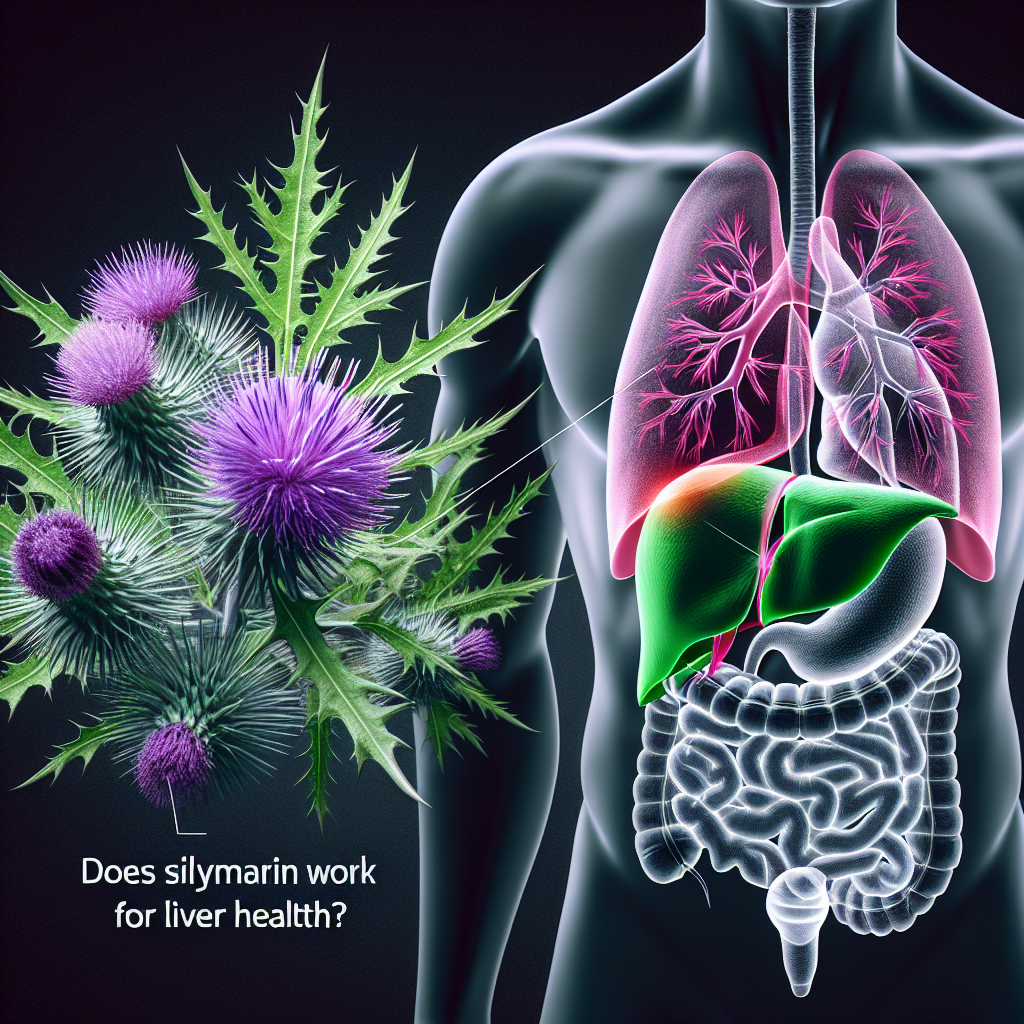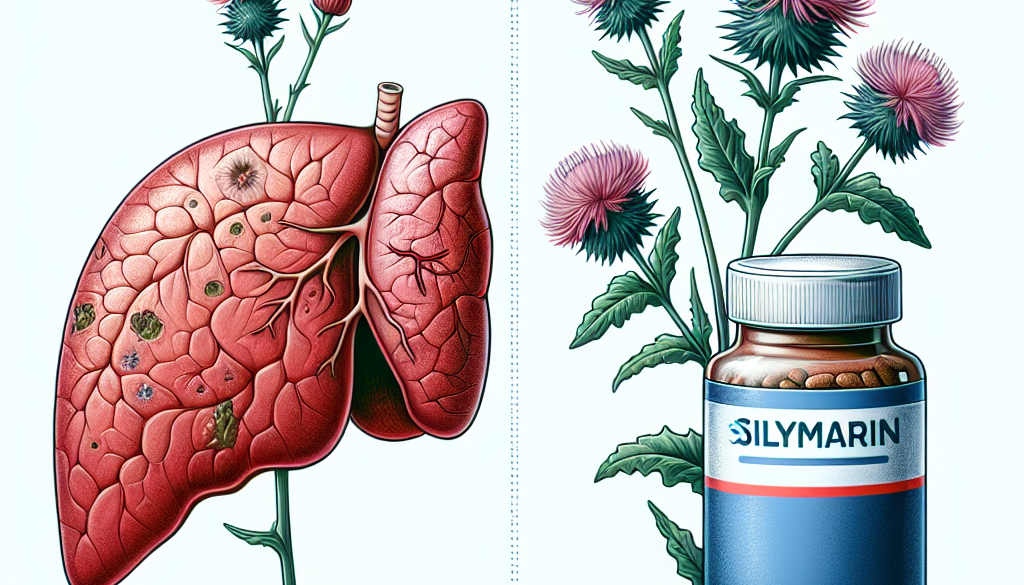Does Silymarin Really Work for Liver Health?
-
Table of Contents
- Silymarin and Liver Health: Unveiling the Truth
- Understanding Silymarin and Its Origins
- The Science Behind Silymarin’s Liver Benefits
- Clinical Evidence: Silymarin in Liver Disease Treatment
- Case Studies and Anecdotal Evidence
- Statistical Analysis: Silymarin’s Impact on Liver Health
- Considerations and Potential Side Effects
- Conclusion: Weighing the Evidence on Silymarin
- ETchem’s Protein Products: Supporting Your Health Journey
Silymarin and Liver Health: Unveiling the Truth

Liver health is a critical aspect of overall well-being, and the quest for natural remedies to support liver function has been ongoing for centuries. Silymarin, a compound derived from the milk thistle plant, has been touted for its potential liver-protective properties. But does silymarin really work for liver health? This article delves into the scientific evidence to uncover the efficacy of silymarin in supporting liver function.
Understanding Silymarin and Its Origins
Silymarin is a flavonoid complex extracted from the seeds of the milk thistle plant, Silybum marianum. It consists of several components, with silybin being the most active. Traditionally, milk thistle has been used in herbal medicine to treat liver and gallbladder disorders. Today, silymarin is available as a dietary supplement and is commonly marketed for liver health.
The Science Behind Silymarin’s Liver Benefits
Research has suggested that silymarin may offer several mechanisms of action that could benefit liver health, including:
- Antioxidant properties that help neutralize harmful free radicals
- Anti-inflammatory effects that may reduce liver inflammation
- Stimulating liver cell regeneration
- Protecting liver cells from toxins by altering cell membranes
These potential benefits have led to numerous studies investigating silymarin’s effectiveness in various liver conditions.
Clinical Evidence: Silymarin in Liver Disease Treatment
Several clinical trials have explored the role of silymarin in treating liver diseases such as alcoholic liver disease, non-alcoholic fatty liver disease (NAFLD), and hepatitis. The results, however, have been mixed.
In cases of alcoholic liver disease, some studies have shown that silymarin can improve liver function tests and reduce liver damage. However, other studies have not found significant benefits.
For NAFLD, a growing health concern linked to obesity and diabetes, silymarin has shown promise in improving liver enzymes and reducing liver fat accumulation in some trials. Yet, the evidence is not conclusive, and further research is needed.
Patients with hepatitis, particularly hepatitis C, have also been subjects of silymarin research. While some patients report feeling better with silymarin use, its impact on virus levels and liver damage is less clear.
Case Studies and Anecdotal Evidence
Individual case studies and anecdotal reports often highlight positive outcomes with silymarin use. However, these accounts lack the scientific rigor of controlled clinical trials and should be interpreted with caution.
Statistical Analysis: Silymarin’s Impact on Liver Health
Meta-analyses and systematic reviews aim to provide a more comprehensive picture by combining data from multiple studies. Some of these analyses suggest that silymarin may have a beneficial effect on liver enzymes in patients with liver disease, but the overall evidence remains inconclusive.
Considerations and Potential Side Effects
While silymarin is generally considered safe, it can cause gastrointestinal disturbances, allergic reactions, and potentially interact with certain medications. It’s essential to consult with a healthcare provider before starting any new supplement, especially for those with existing liver conditions or taking other medications.
Conclusion: Weighing the Evidence on Silymarin
In conclusion, while there is some evidence to suggest that silymarin may benefit liver health, the scientific community has not reached a consensus. The variability in study designs, dosages, and patient populations makes it challenging to draw definitive conclusions. More high-quality, large-scale clinical trials are needed to determine the true efficacy of silymarin for liver health.
ETchem’s Protein Products: Supporting Your Health Journey
If you’re looking to support your health with high-quality protein products, ETchem offers a range of options. Their extensive selection of collagens, including marine, fish, bovine, and chicken collagens, can cater to various dietary and health needs. Whether you’re involved in sports nutrition, weight management, or general wellness, ETchem’s products are designed to meet your protein requirements effectively.
About ETChem:
ETChem, a reputable Chinese Collagen factory manufacturer and supplier, is renowned for producing, stocking, exporting, and delivering the highest quality collagens. They include marine collagen, fish collagen, bovine collagen, chicken collagen, type I collagen, type II collagen and type III collagen etc. Their offerings, characterized by a neutral taste, instant solubility attributes, cater to a diverse range of industries. They serve nutraceutical, pharmaceutical, cosmeceutical, veterinary, as well as food and beverage finished product distributors, traders, and manufacturers across Europe, USA, Canada, Australia, Thailand, Japan, Korea, Brazil, and Chile, among others.
ETChem specialization includes exporting and delivering tailor-made collagen powder and finished collagen nutritional supplements. Their extensive product range covers sectors like Food and Beverage, Sports Nutrition, Weight Management, Dietary Supplements, Health and Wellness Products, ensuring comprehensive solutions to meet all your protein needs.
As a trusted company by leading global food and beverage brands and Fortune 500 companies, ETChem reinforces China’s reputation in the global arena. For more information or to sample their products, please contact them and email karen(at)et-chem.com today.




